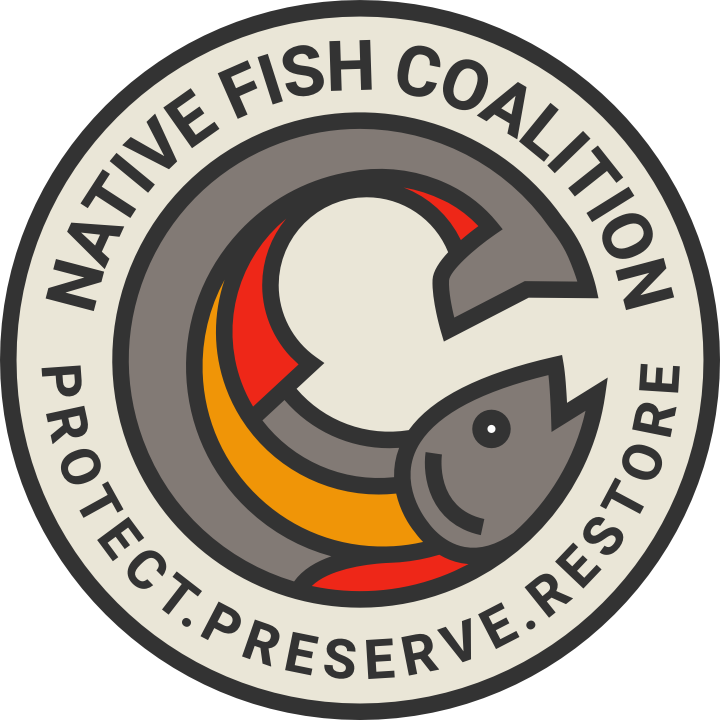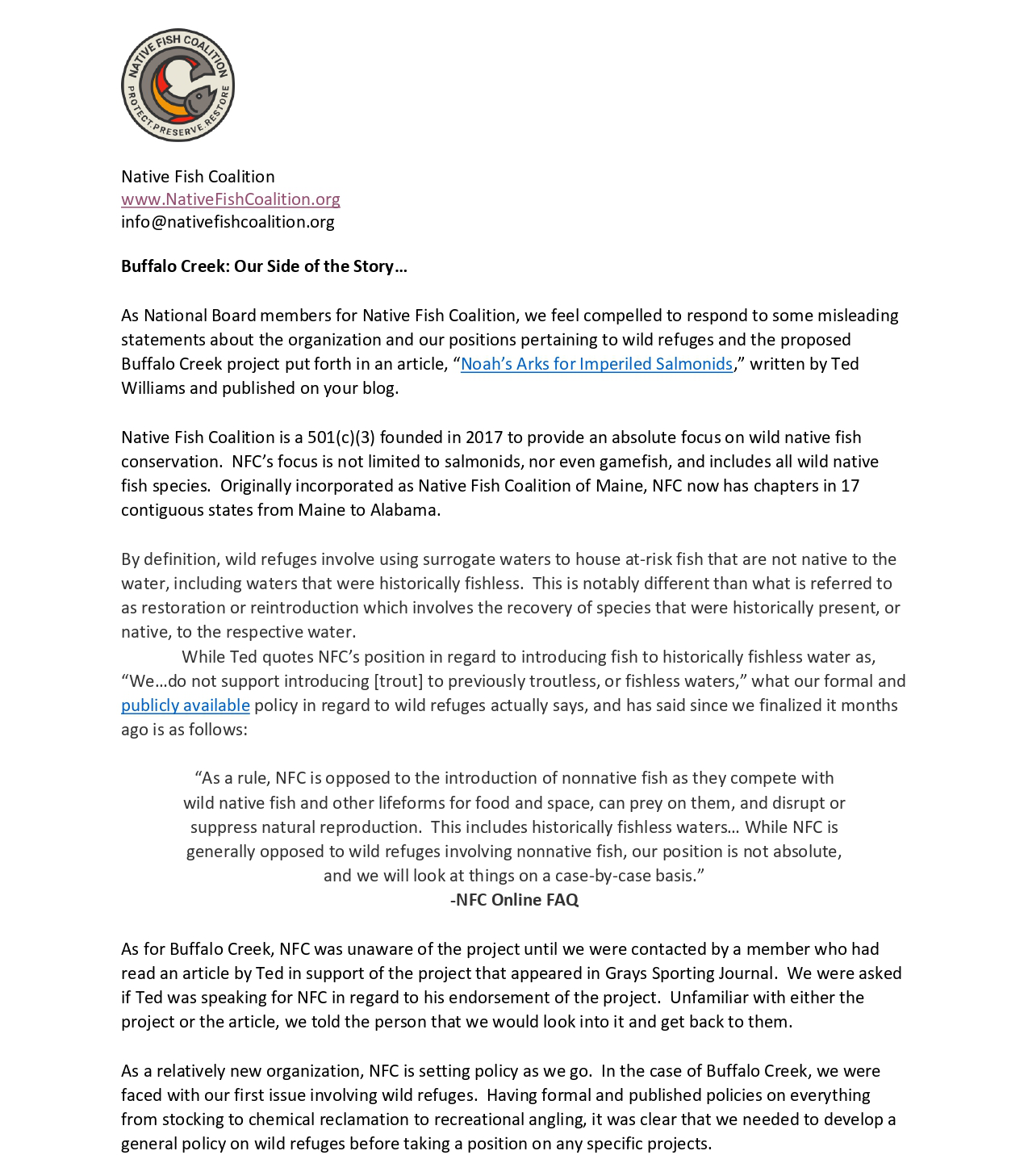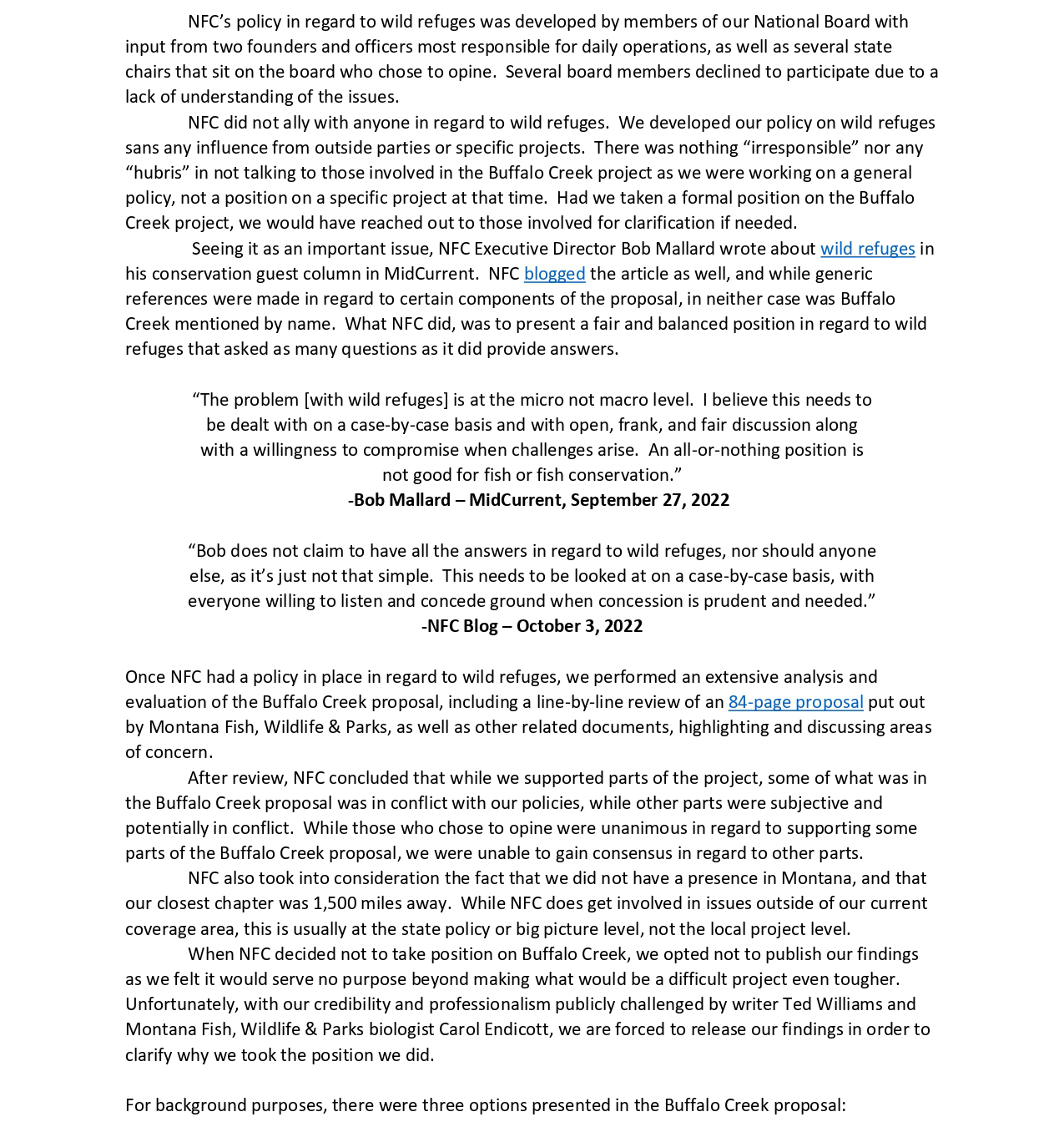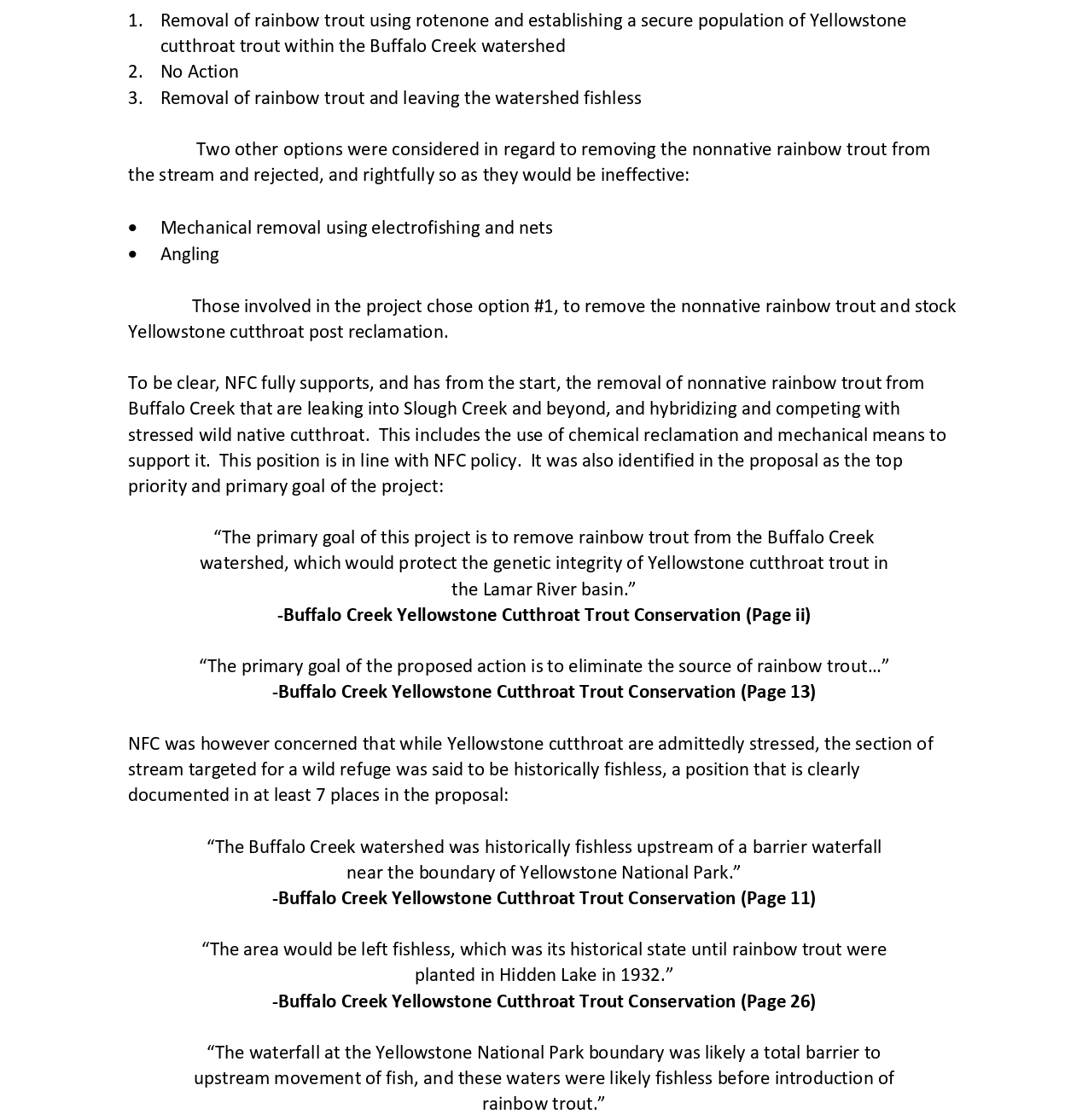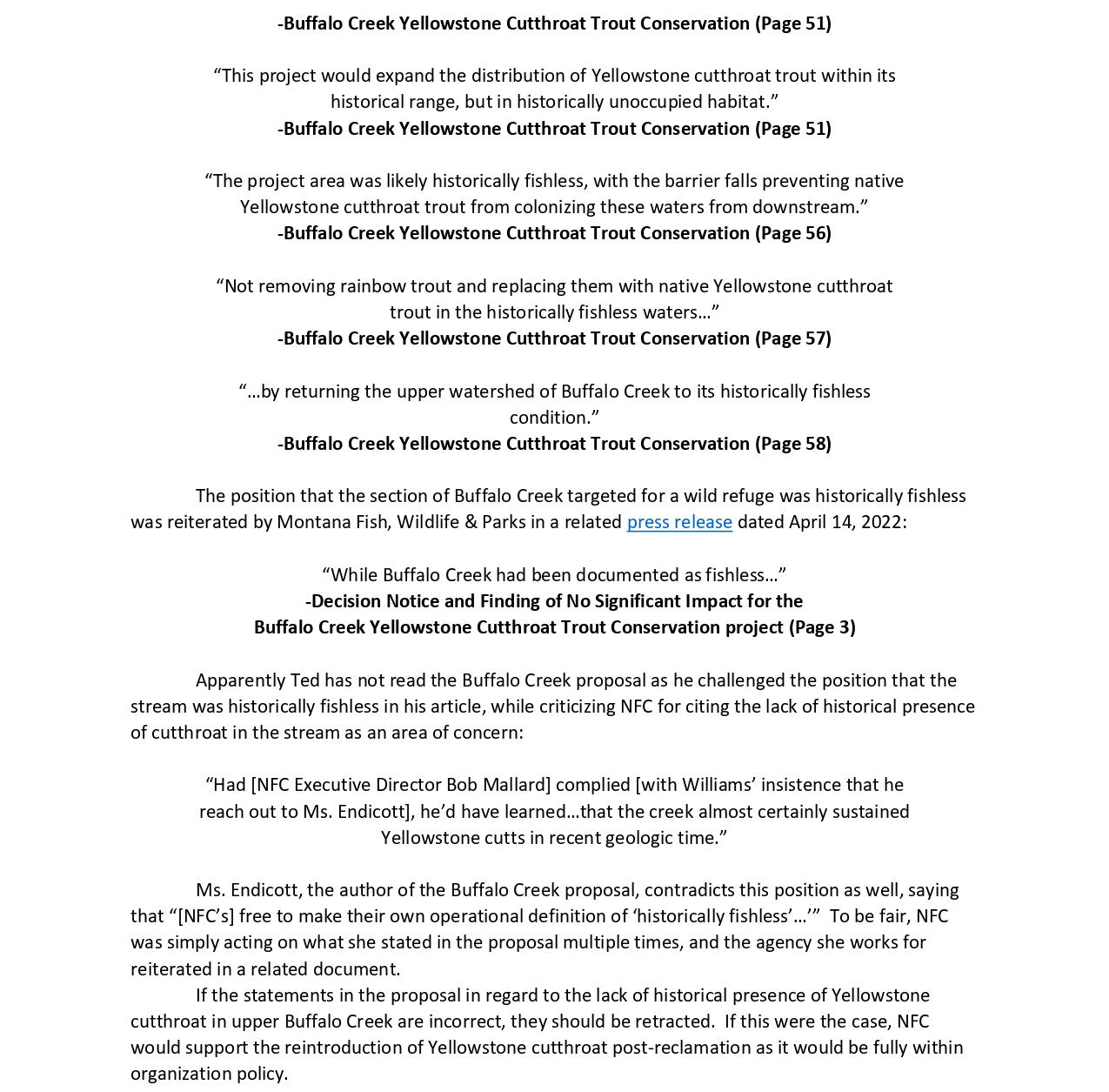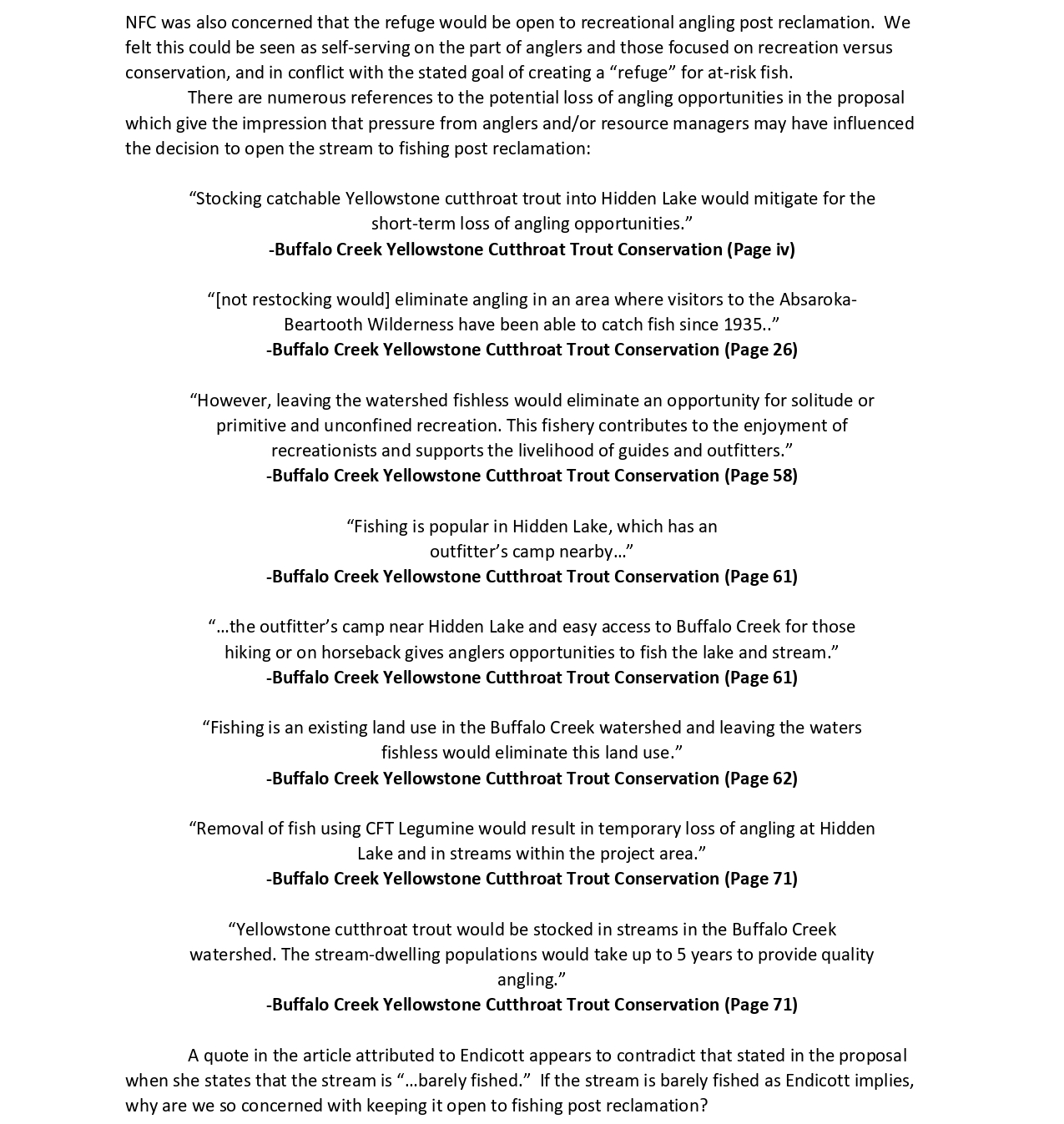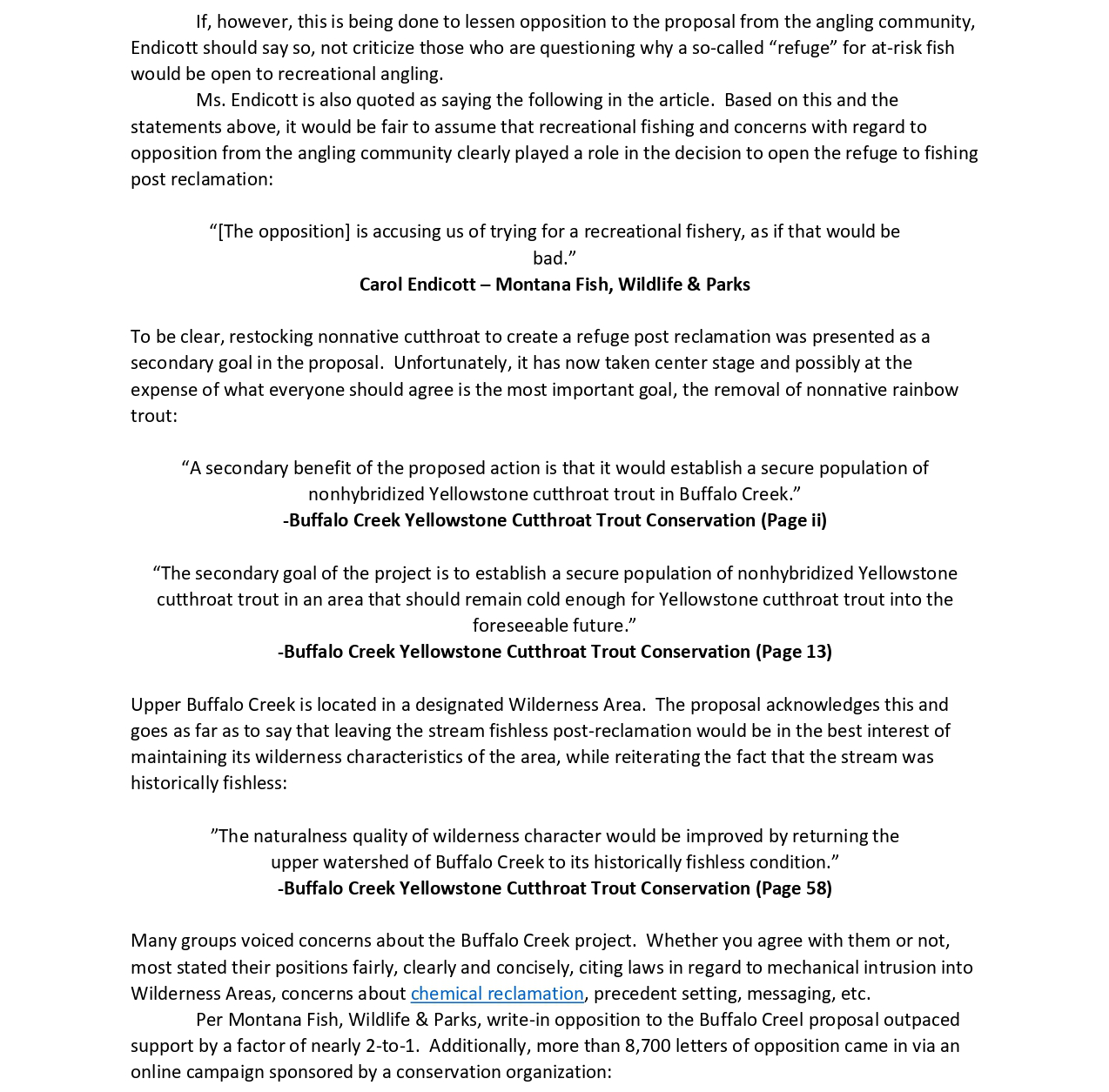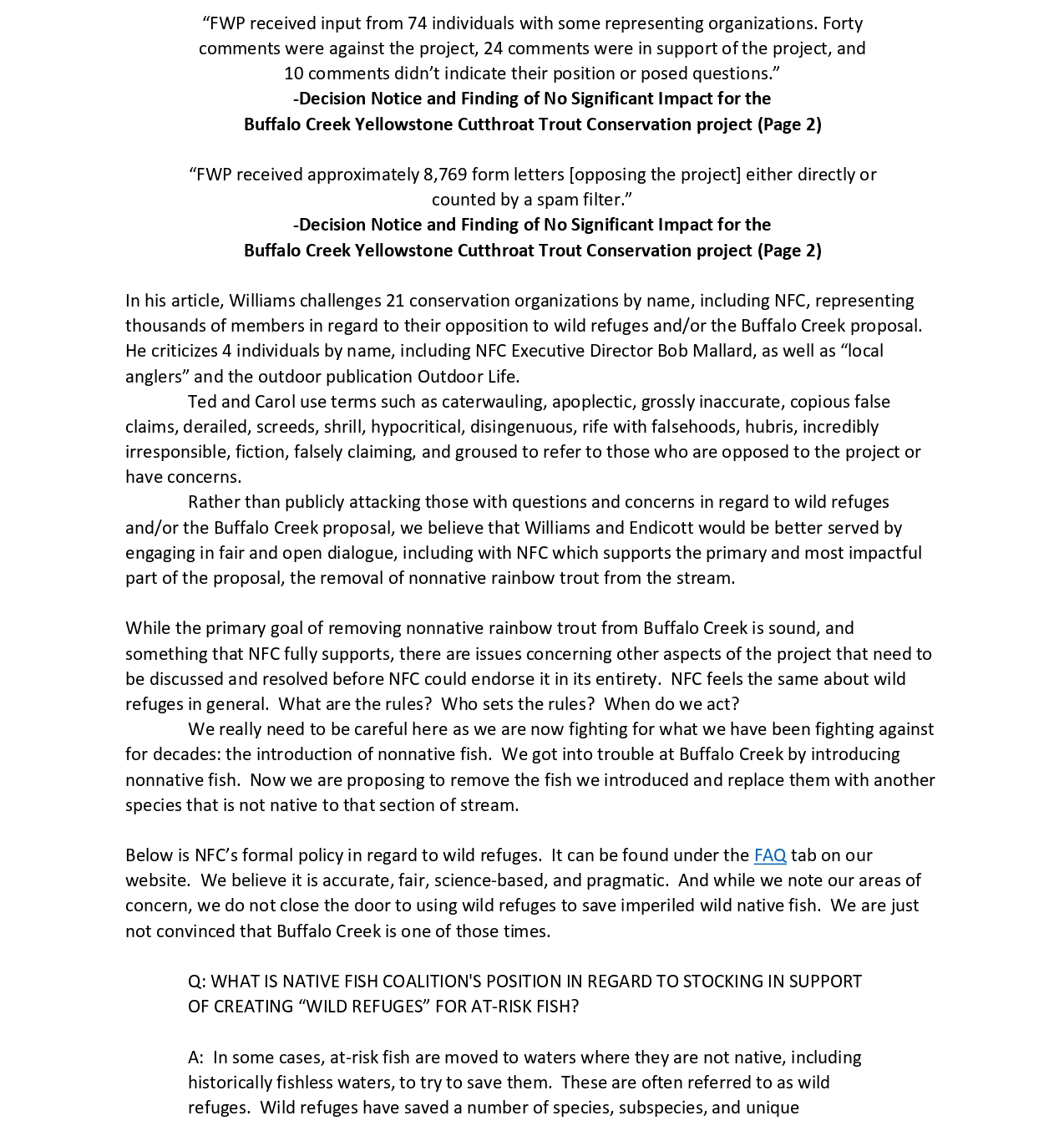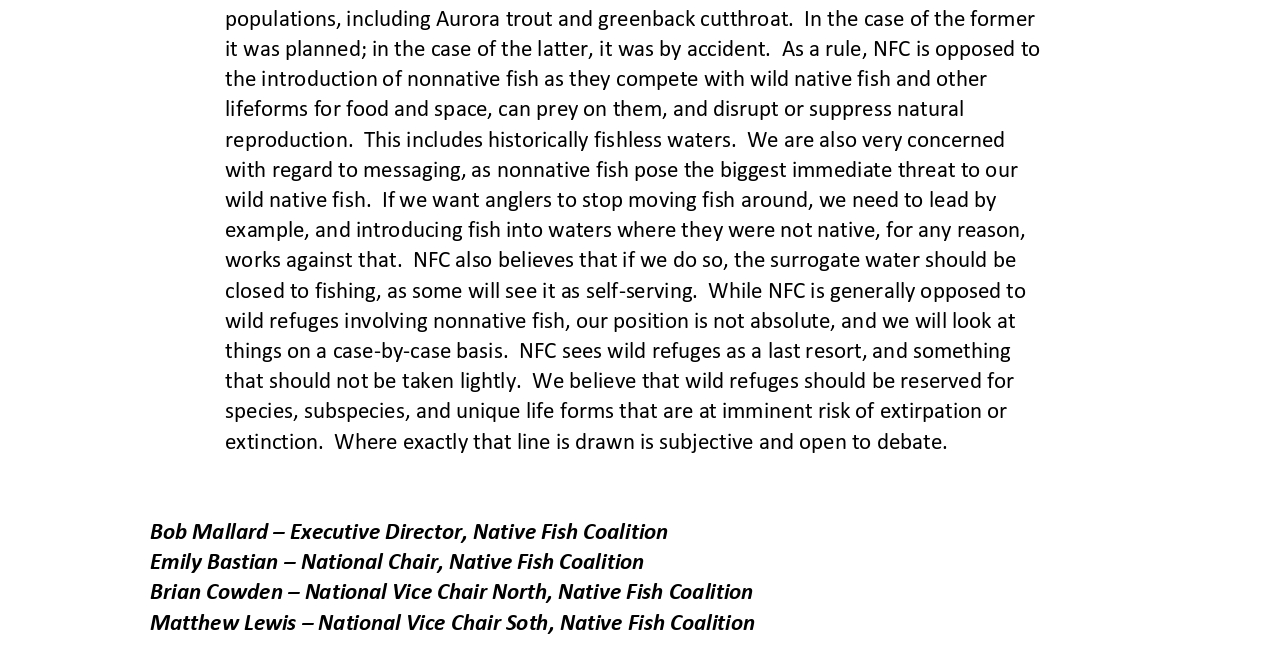Wild Refuges and Buffalo Creek: Our Side of the Story...
As noted in a recent blog post, NFC was publicly challenged by a former board member in regard to our positions pertaining to so-called “wild refuges,” as well as a specific proposal to create a wild refuge in what was a historically fishless section of stream in Montana just outside of Yellowstone National Park.
The article in question, posted on the blog of LandCAN, portrayed NFC in an inaccurate and unnecessarily personal and negative manner. It also misrepresented Buffalo Creek, the Buffalo Creek project, and what was driving what.
While NFC will not address the personal issues as it serves no purpose, we did choose to address the inaccuracies and misrepresentations in a rebuttal that was posted on the blog a week after the original article so as to be able to speak for ourselves.
“While the primary goal of removing nonnative rainbow trout from Buffalo Creek is sound, and something that NFC fully supports, there are issues concerning other aspects of the project that need to be discussed and resolved before NFC could endorse it in its entirety. NFC feels the same about wild refuges in general. What are the rules? Who sets the rules? When do we act? ”
Both wild refuges and Buffalo Creek are complex issues. Neither is cut-and-dry and both ask as many questions as they answer. In a world where the number one immediate threat to our wild native fish is nonnative fish introductions, we need to tread lightly in regard to moving fish around, and regardless of the reason so as to avoid sending mixed messages and confusing the masses.
The article in question was an oversimplification of wild refuges and when, where, and how they should be used. It set no boundaries nor defined any criteria or rules in regard to establishing and managing wild refuges. It was more about the details of a specific project than a discussion about a big picture issue that could have notable implications and risks.
And to be clear, NFC has never closed the door to wild refuges, we just want to be really careful and use them as a last resort, not a routine management tool. Our concern is that relying on wild refuges to offset losses elsewhere takes pressure off resource managers in regard to fixing what we break, and protecting fish in their native habitats. If the only giraffes left were found in Nevada, have we really saved them?
“We got into trouble at Buffalo Creek by introducing nonnative fish. Now we are proposing to remove the fish we introduced and replace them with another species that is not native to that section of stream.”
After an extensive line-by-line review of an 84-page formal proposal, NFC opted to take a non-position in regard to the Buffalo Creek project due to concerns with some of what was being proposed, as well as how it was being presented.
NFC fully supports the primary goal of the project which is to remove nonnative rainbow trout that are imperiling native cutthroat throughout the Slough Creek and Lamar River watersheds, critically important wild native Yellowstone cutthroat habitat.
We were however concerned with a secondary goal of introducing cutthroat post-reclamation to a section of stream that according to the project plan and related documents was historically fishless. While NFC was challenged for taking liberties here, the streams historically fishless state was noted no fewer than 7 times in the formal proposal, and reiterated in a subsequent press release.
NFC was also concerned that the post-reclamation cutthroat “refuge” would remain open to recreational angling, something that is noted numerous times in the project plan. The article defends this by saying it is “rarely fished,” even though fishing is listed as an important historical and current resource use numerous times in the formal project plan.
It is also important to note that formal write-in opposition to the Buffalo Creek project outpaced support by a nearly 2-to-1 ratio, with many national conservation organizations voicing their concerns. The article offers no concessions or compromises to try to increase support for the project or reduce opposition.
“We really need to be careful here as we are now fighting for what we have been fighting against for decades: the introduction of nonnative fish.”
The article contradicts the formal proposal numerous times. A review of both will show these inconsistencies. NFC summarized them with sourced references in our rebuttal.
Whether the Buffalo Creek proposal will succeed or fail is yet to be determined. The opposition to the project is notable, influential, effective, and well-funded. As of today, the U.S. Park Service announced it is open for public comment in regard to the parts of the project that will impact Yellowstone National Park. This will likely result in more opposition as folks are very protective of our national parks.
We can no longer afford to take an all-or-nothing approach to conservation as it often results in chronic delays, wasted time and money, and failure. Concessions and compromises are often necessary to advance important projects. NFC would hate to see the primary goal of the project, removal of the nonnative rainbows, sacrificed due to a secondary and arguably unnecessary, at least at this time, goal of creating a wild refuge.
